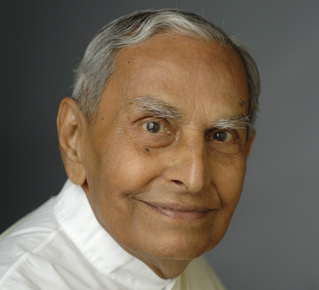Hippocrates, regarded as the father of modern medicine, lived four centuries before Christ. Even he taught his students to observe the emotional state and the general background of their patients, for he knew that health could be affected by the mind

Good health has been described as the complete integration of body, mind and soul. Grey Anderson, an eminent American counsellor calls good health “wellness” – he says “wellness” is a choice, a decision that we all have to make in order to maximise our life’s potential. Wellness encompasses all the major areas of our life – the physical, emotional, social, intellectual, vocational, and spiritual spheres. Wellness sets a new standard for life – it calls for continuing improvement and self-renewal in all areas of our life. Wellness is much more than the absence of illness. It is total well-being in body, mind and spirit.
Health and happiness are twin goals that mankind has always pursued. Many of us know that we must be healthy in order to be happy; but very few of us realise that we must strive to be happy in order to be healthy!
Since the beginning of the 20th century, we have accepted what is known as psychosomatic unity of the human being. ‘Psyche’ means mind or soul; ‘soma’ means body. Thus, the psychosomatic concept tells us that we are not just bodies – but an entirety that includes body, mind and spirit, functioning in a symbiotic relationship in which a separation is impossible to make.
The World Health Organisation (WHO) defines health as “a state of complete physical, mental and social well-being – and not merely the absence of disease and infirmity.” To this we must add, spiritual well-being – without which a feeling of ‘wellness’ is incomplete.
The sad fact of the matter is that people take good health for granted. They don’t even think about their health until they are in danger of losing it – when illness and disease begin to threaten. Even then, they go to a doctor or a hospital, and think that this is all they have to do about it.
This reminds me of the words of the great comedian, Charlie Chaplin. He said: “When I fall sick, I go to the doctor. After all, the doctor has to live! The doctor writes out a prescription for me and I take it to the chemist – for the chemist too must live! The chemist gives me medicines – but I don’t take them, for I too must live!”
This reminds me of the words of the great comedian, Charlie Chaplin. He said: “When I fall sick, I go to the doctor. After all, the doctor has to live! The doctor writes out a prescription for me and I take it to the chemist – for the chemist too must live! The chemist gives me medicines – but I don’t take them, for I too must live!

I must offer due apologies to doctors and chemists who are reading this. But I am sure they too will see the point of the joke – you are your own healer. The power of healing is within you. And the time has come when doctors too have realised that they must work not on the disease and its symptoms – but on this principle of healing that is within each one of us.
It was Dr Johnson who said: “To preserve health is the moral and religious duty of us all – for health is the basis of all social virtues. We can no longer be useful when we are not well.”
Longevity is not the primary goal of human life. We are told that life expectancy has increased in our times, and this is attributed to better health care and the advances made in medicine and allied sciences. But a longer life is not what all of us seek. A life of pain and disease and affliction can only be a miserable burden, when it is prolonged. Thus, we have the cases of incurable diseases, and people who are ‘clinically dead’ being put on life-support systems in the ICU’s of hospitals. This is hardly the kind of treatment or ‘life’ that we aspire to!
Take the case of a man who is not really ill. He may not suffer from any disease - but he may feel dull, lethargic and listless. He may be unhappy, and beset by negative emotions. Such a man is not really healthy.
True health and well-being encompasses man’s physical, mental, intellectual, and spiritual state. When there is harmony and integrity between all these states, a man is in good health. This is the concept of holistic health that we need now.
Throughout history, wise men have been aware of the relationship between right thinking, positive attitudes, good habits and good health. Hippocrates, regarded as the father of modern medicine, lived four centuries before Christ. Even he taught his students to observe the emotional state and the general background of their patients, for he knew that health could be affected by the mind. He taught that to be truly healthy and whole, a person must be at peace with himself and in harmony with the world around him.
by Dada JP Vaswani